A Dry, Itchy Scalp Is No Fun—Derms Share 4 Ways to Instantly Deliver Moisture

In case you missed it, scalpcare is having a renaissance, and beauty enthusiasts everywhere are stocking up on their scalp brushes as well as ultra-hydrating haircare and styling products. Suddenly, no washday is complete without an effective scalp scrub followed by a moisture-replenishing serum. I'm extremely excited to see the renewed interest in intensive scalpcare (the products dominating my TikTok's algorithm are almost always sold out), but as a beauty editor, I'm always aware of how easy it is to hop onto a beauty craze without considering how beneficial it will be for your particular concerns and problem areas.
Different skin types are commonly discussed as it pertains to the face, but dry, itchy scalps, have been neglected for long enough without proper input from experts who can educate us on what matters. I've tapped James Kilgour, MD, for his guidance on how to restore a dry scalp to its healthiest, most hydrated, and most moisturized state. Say goodbye now to your flakes; you won't be missing them.

1. Determine the Cause of Your Scalp's Dryness
To truly understand the many culprits that can cause a dry scalp, it's important to know what how scalp should feel in its healthiest state. According to Kilgour, sebum is one of the biggest contributors to skin barrier health and is produced by the sebaceous glands that connect to our hair follicles. These glands are predominantly found on the face's central zone, also known as the T-zone, as well as on our scalp. The fluid plays as essential role in moisturizing and reinforcing our skin barrier since it locks in hydration and plays defense against harmful actors such as environmental aggressors.
"Sebum is produced by the sebaceous glands at our hair follicles, and the fluid then moves down our fibers from root to end," he explains. "Longer and curlier hairstyles are more prone to dryness, given the time taken for the fluid to reach the ends compared to shorter hairstyles that are more quickly moisturized." Sebaceous fluid production is regulated by a number of factors, including genetics, sex, and hormonal levels. If you're noticing itchiness, dryness, and flakiness, it may be time to update your haircare routine to include products that can address it.
2. Be Picky About Your Shampoos
Next, you'll want to pay attention to the ingredients on the back of shampoo bottles while you're on the hunt for one to add to your moisturizing product lineup. "One of the biggest modifiable factors influencing the moisture level of your scalp is the products that you use. Overly stripping or 'clarifying' shampoos, especially those containing sodium lauryl sulfate or sodium laureth sulfate, will lead to dryness and irritation over time in all but the oiliest of scalps," Kilgour tell me. Opt for shampoos formulated with gentle cleansers such as cocamidopropyl betaine to promote scalp health by adding moisture instead of stripping it away.
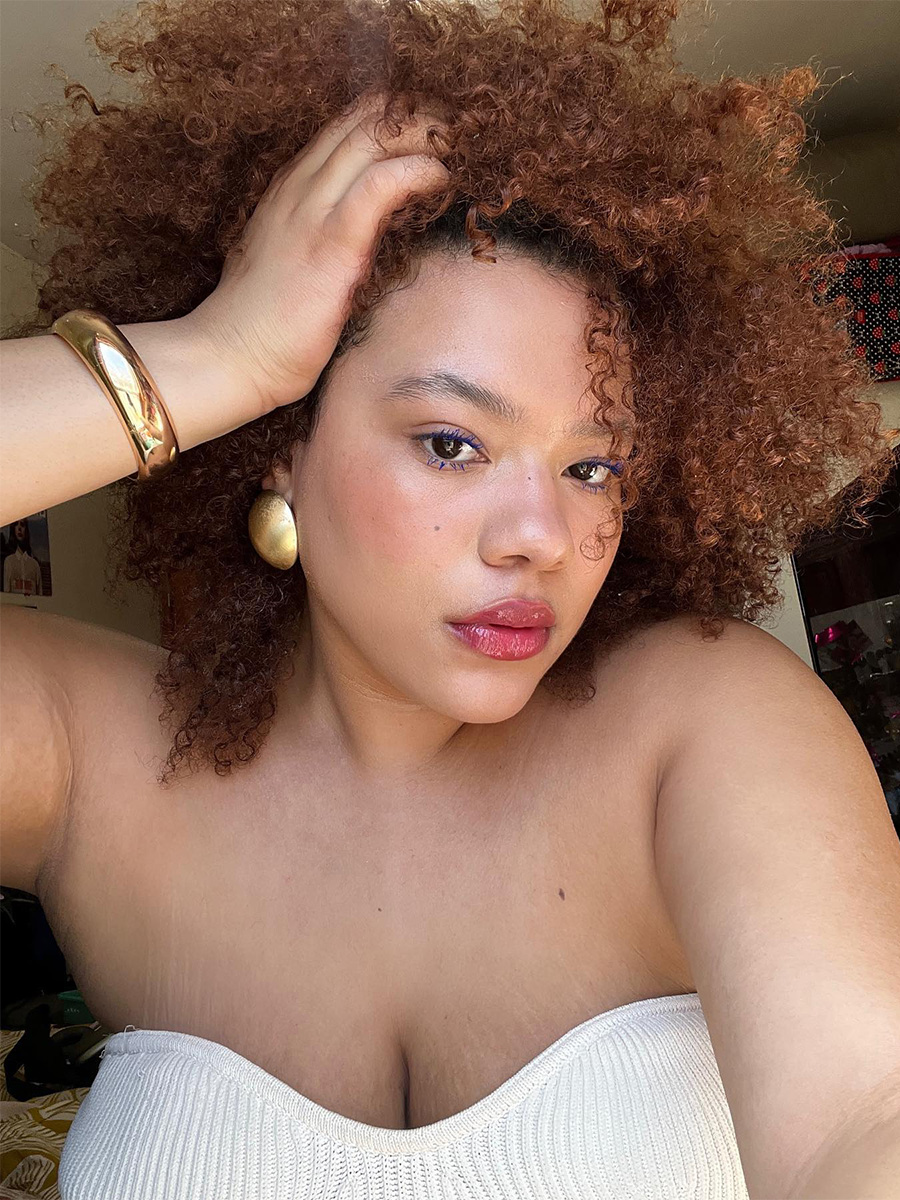
3. Keep Hydrating and Moisturizing Conditioners on Deck
After washing your hair with a non-stripping shampoo, support your scalp's skin barrier by using a moisture- and hydration-replenishing conditioner. If you have a dry scalp, take the extra steps during washing and conditioning your hair to protect your scalp. Kilgour also reminds us that some people's scalp skin is naturally drier than others. Some scalps need extra attention to help lock in hydration post-shampoo. Consider also incorporating a scalp scrub into your wash routine. While using a scalp scrub may seem counterintuitive, it can help remove buildup and dead skin, allowing serums and oils to penetrate deeper into the skin.
4. Start Using Scalp Serums, and Stop Using Products With Denatured Alcohol
After you've thoroughly cleansed your scalp and strands with gentle, moisture-boosting shampoo and conditioner, Kilgour recommends finishing your haircare with a scalp serum designed to deliver hydration to the scalp. His favorite serum product to ensure the scalp's skin barrier remains healthy and hydrated is KilgourMD's Prevention Scalp Serum. Just apply a few drops to the scalp and gently massage it in. "[It's] a gentle yet effective serum designed to maintain optimal scalp health for growth. In addition to growth and anti-aging benefits, the serum contains hydrating and soothing ingredients, including panthenol," he says of the product.
Alternately, Kilgour encourages individuals suffering from a dry scalp to avoid haircare and styling products with formulas containing denatured alcohol, as it can worsen the dryness and irritation. To help you build a product lineup that will revive your dry scalp, keep scrolling for my edit of the six best shampoos, conditioners, serums, and treatments to combat a dry scalp.
The Best Products to Restore Your Scalp's Moisture

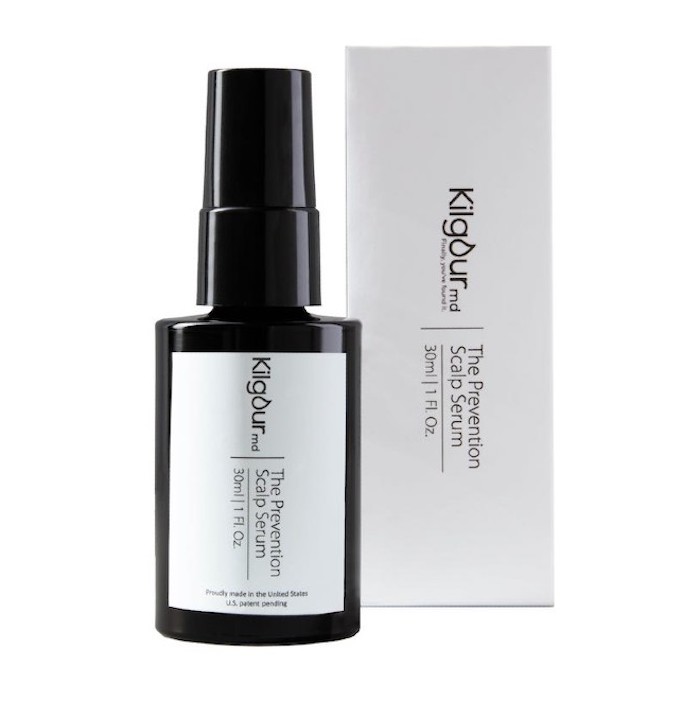
Glowing Review: "After using this product for just two weeks, I am already seeing a significant decrease in my hair fall. This product truly works wonders. As someone who has been skeptical of scalp care products in the past, I was relieved to discover that this product is developed by a dermatologist. The formula is exceptional as it leaves my hair non greasy after application. I am very happy I found this product!"
Product Details: 1-ounce bottle with pump
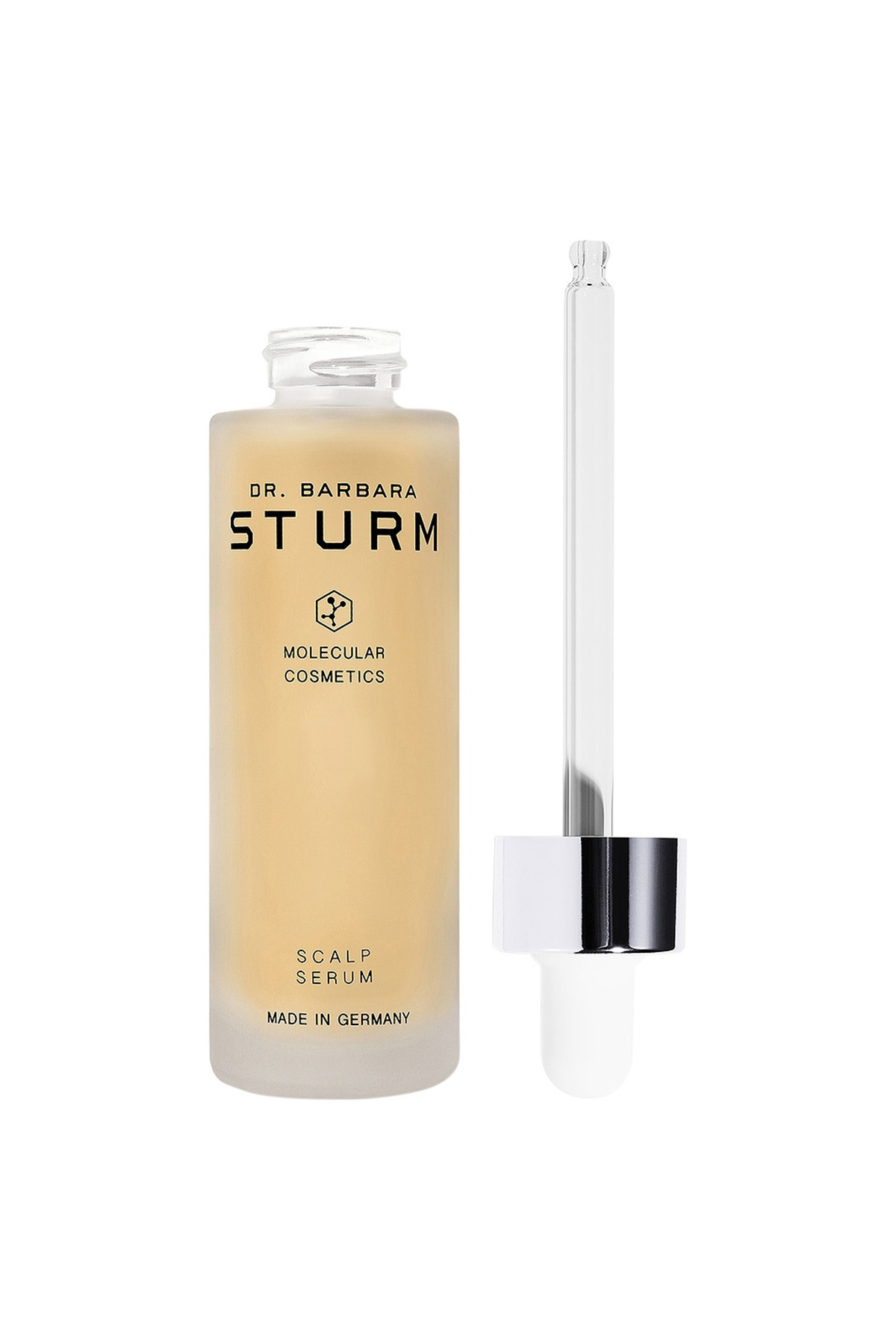
Glowing Review: "Since I found this scalp serum it's the only one I use and will continue using. It's perfect for my scalp, as someone with a low-trim haircut that is trimmed 2–3 times a week. The serum keeps my scalp moisturized and healthy [whether] freshly trimmed [or] slightly grown. Can't recommend it enough."
Product Details: 1.69-ounce bottle with dropper
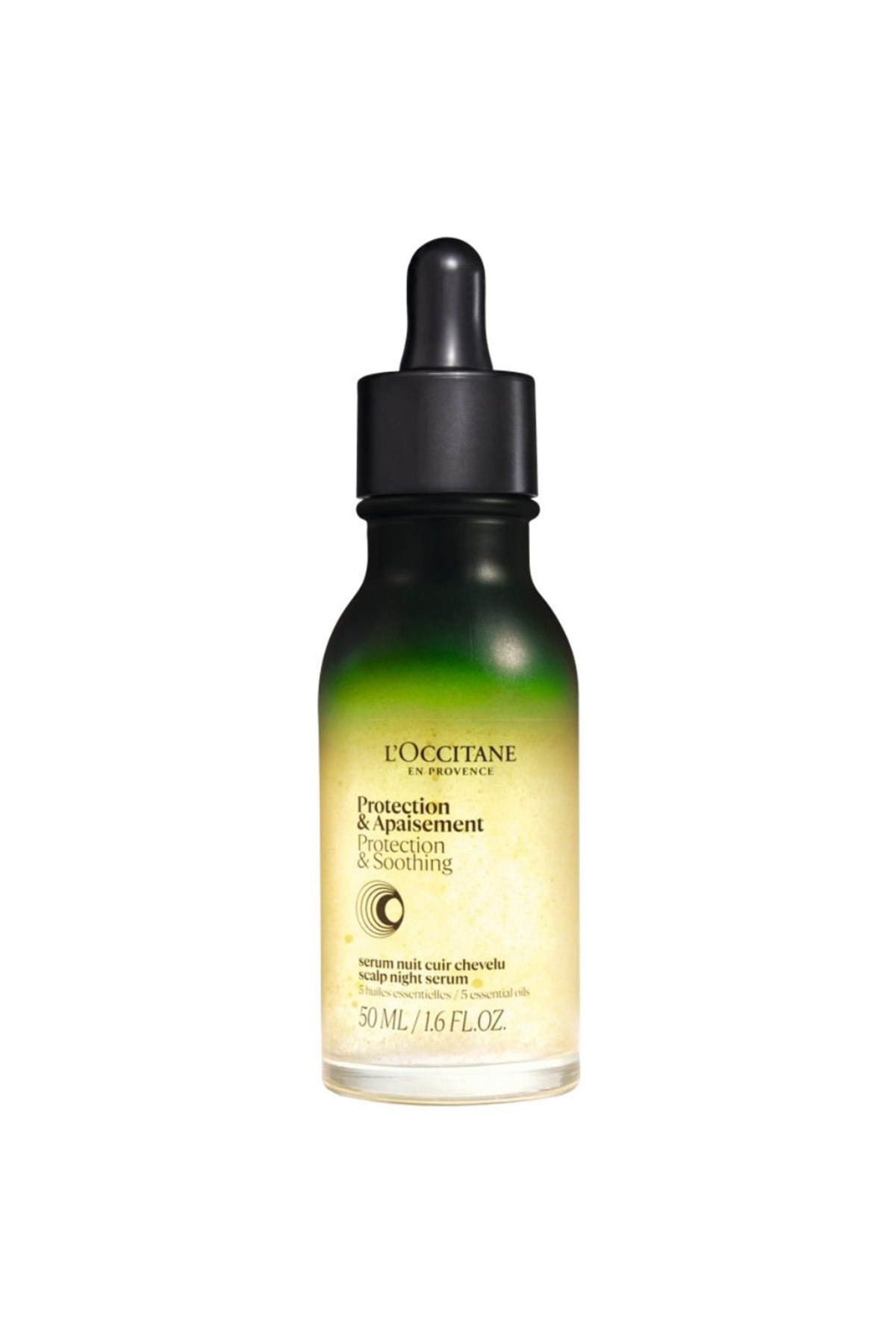
Glowing Review: "I was skeptical of using a hair serum as I had always thought it would make your hair appear oily afterwards, but L'Occitane Protection & Soothing Scalp Night Serum provided me so wrong! The serum smells amazing just like you've been to a day spa and the dropper is so easy to glide into your hair. After massaging it all in I was so surprised at how quickly it absorbed with no oily appearance afterwards! The serum feels calming and non irritating and I'm someone who has sensitive skin. My hair felt soft and shiny afterwards and I cannot wait to keep using it and incorporate it into my hair care regime I received this product as a gift for my honest review."
Product Details: 1.6-ounce bottle with dropper
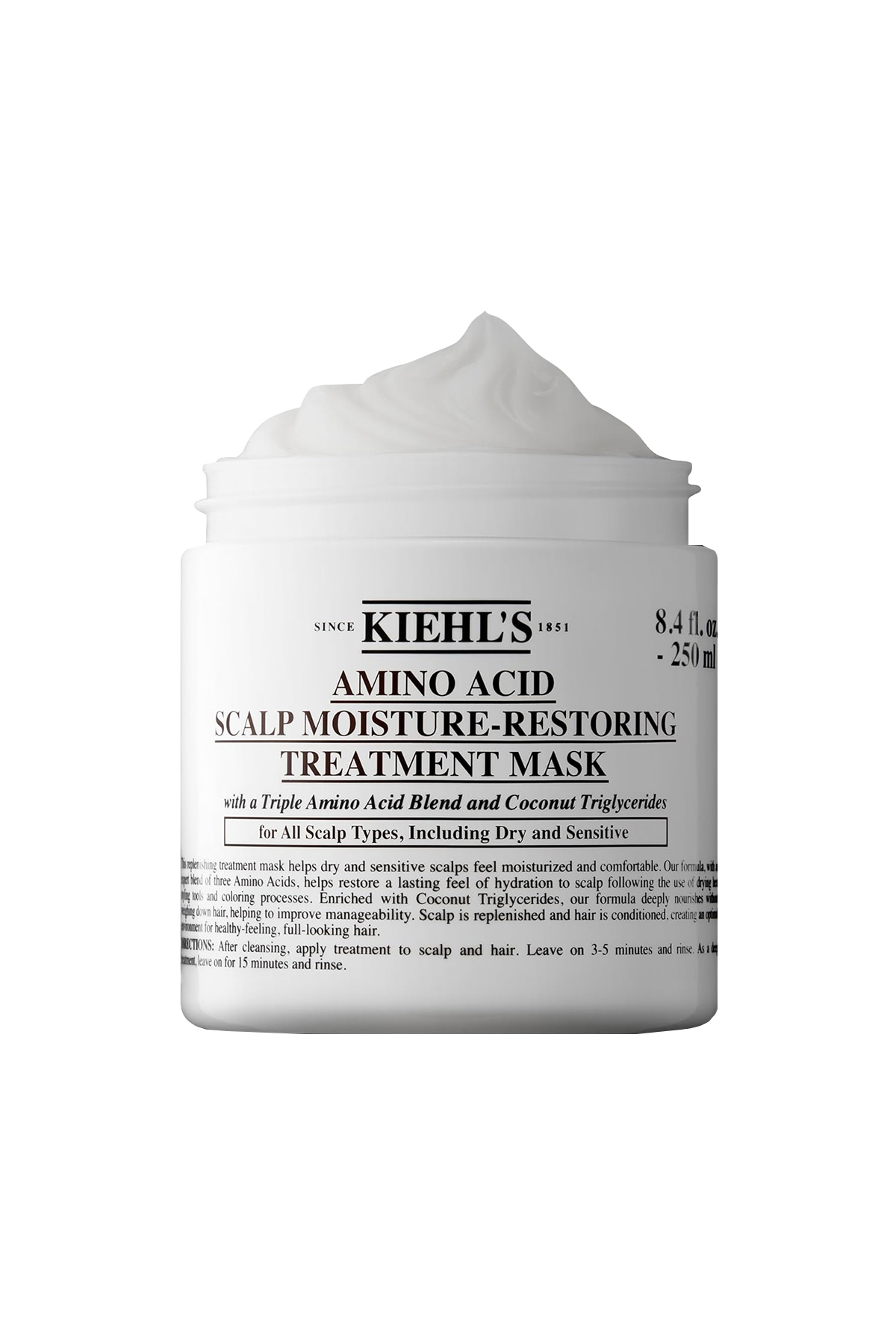
Glowing Review: "I have used this line for many years. The reputation proceeds them and as expected it delivers exactly what it is supposed to.It is packed full of amino acids and vitamins to help stimulated new hair growth, improve the health of your scalp and stimulate new hair growth. I have been using it for several weeks and have a significant amount of new growth. In addition, my hair strands seem to be much softer and moisturized."
Product Details: 8.4-ounce jar
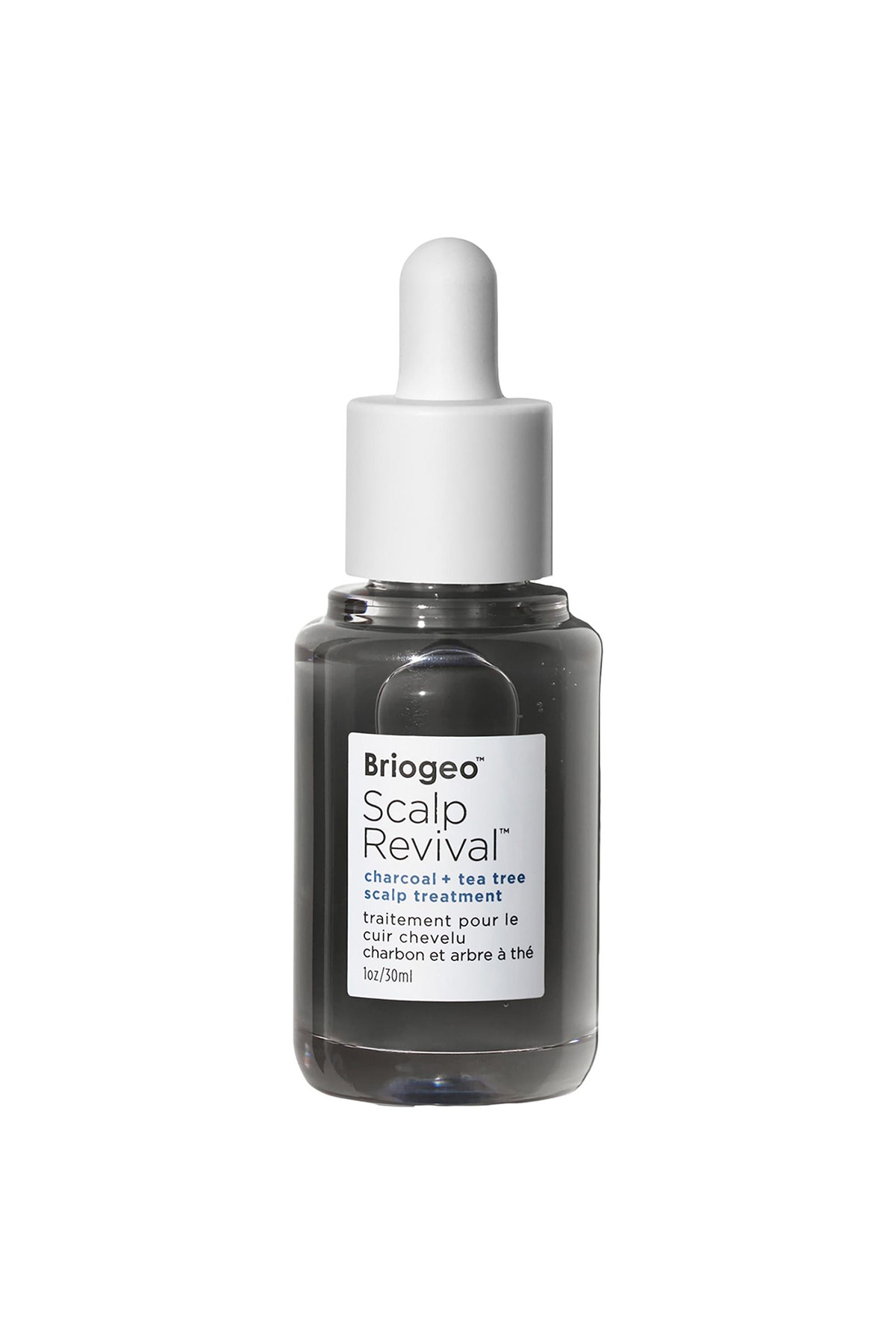
Glowing Review: "I have been consistently using this product for two years and it has been life saving to help with eczema, dermatitis that also affects my scalp. I love that it leaves my scalp feeling calm and the packaging makes it so convenient to use. I also love the minty smell of it. This is a haircare staple along with the shampoo of this line and the oil to use before washing your hair."
Product Details: 1-ounce bottle with dropper

Glowing Review: "The lather on this shampoo is amazing, and the softness of my hair is unmatched by anything else I have ever used. I previously loved the full shampoo, but I won't go back because this stuff is just so outstanding. I don't have damaged hair, but I have more delicate hair now, than in my youth, and this shampoo feels like my strands are being pampered. Yay!"
Product Details: 8-ounce tube of shampoo and 6.7-ounce tube of conditioner

Maya Thomas is Who What Wear's Associate Beauty Editor based in New York City. Her strong love for all things beauty and fashion stems from a strong childhood interest in the fine arts. During a gap year spent in Paris studying the history of French fashion, she shifted her focus to English literature and journalism as a student at Loyola Marymount University with the goal of one day pursuing a career in fashion. After graduating in May 2021, Maya began freelancing for Parade.com as a contributing commerce writer while also building a following on her lifestyle blog, Itsmayalala.com. When she's not writing, Maya spends her free time catching up on reading, perusing art galleries, and enjoying a night out at the ballet every now and then.